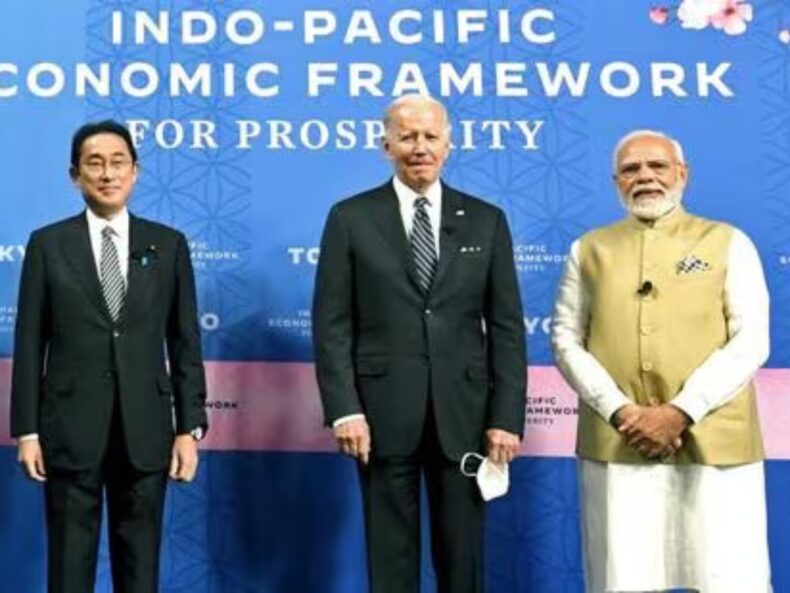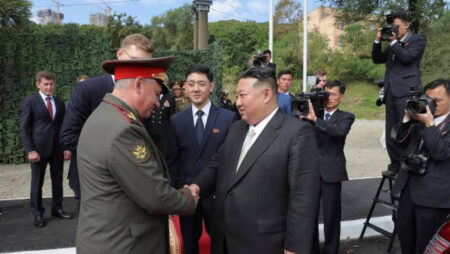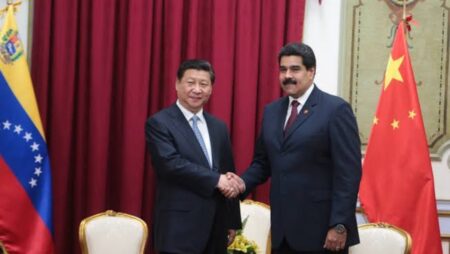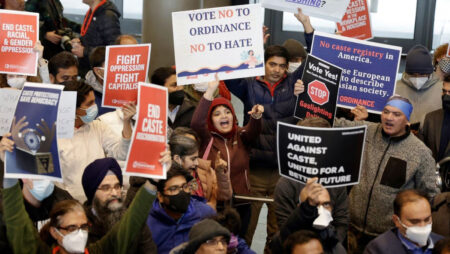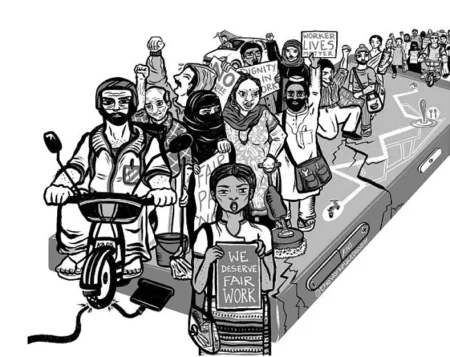Indo-Pacific Economic Framework Nations decided to strike a supply chains resilience deal to decrease reliance on China
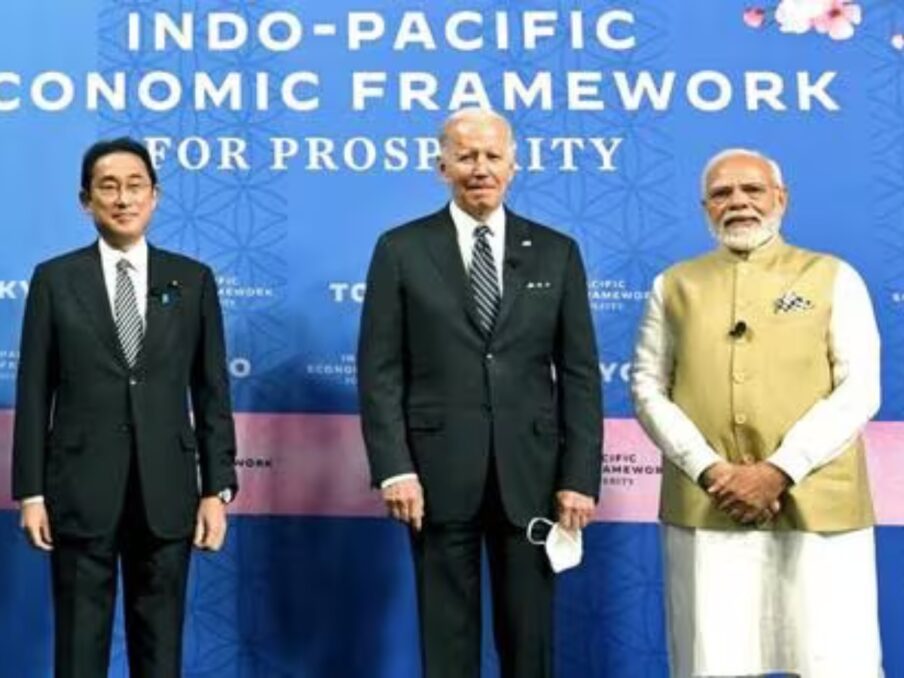
Image Source: Hindustan Times
Fourteen nations, including the US and India, collaborate on enhancing supply chain resilience and diversification through information-sharing and coordinated crisis response.
It’s a significant move to decline dependence on China and tackle future supply chain crises, the Indo-Pacific Economic Framework (IPEF) has announced a ground-breaking deal on supply chain resilience and diversification.
Bringing together 14 participant countries, including India and the United States, the IPEF aims to establish an IPEF supply chain council, supply chain crisis response network, and labour rights advisory network. This agreement marks the first-ever international accord on supply chains, uniting partners across the Indo-Pacific region.
Building Supply Chains and Fostering Growth
At the second in-person ministerial meeting of IPEF countries held in Detroit, virtual representation by India’s Minister for Industry and Commerce, Piyush Goyal, emphasized New Delhi’s commitment to building resilient supply chains and fostering a clean and fair economy to drive regional growth.
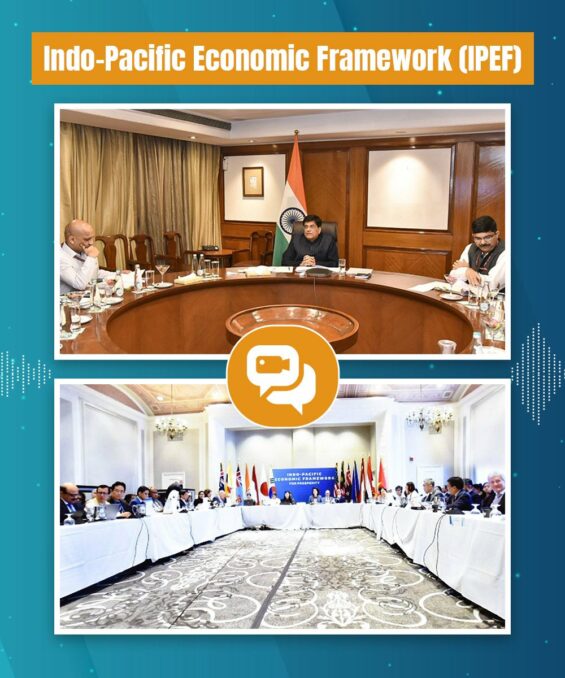
Image source: Tweet by Minister Piyush Goyal
The participants highlighted progress in the trade, clean economy, and fair economy pillars of the IPEF framework, with a focus on a regional hydrogen initiative to promote clean energy and climate-friendly technologies.
Strengthening Coordinated Response
The deal on supply chains within the IPEF seeks to bolster the resilience, efficiency, productivity, sustainability, transparency, diversification, security, fairness, and inclusivity of member countries’ supply chains.
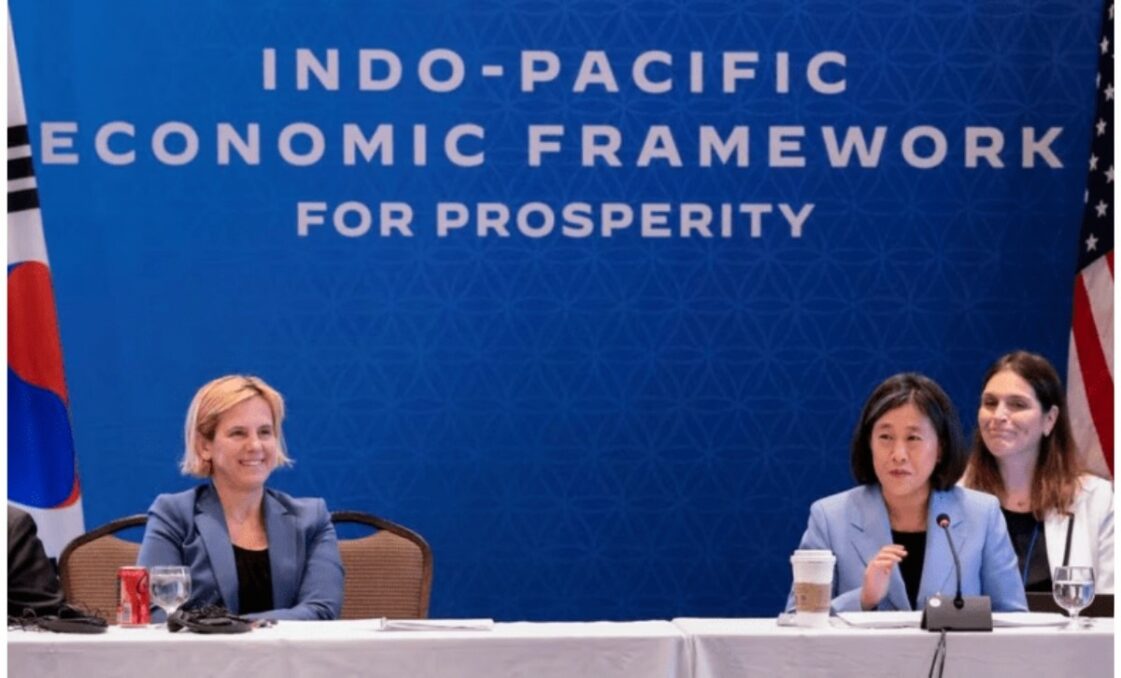
Image source: The Mint
Through collaboration and individual actions, the framework aims to enhance crisis coordination and response, minimize disruptions, and ensure the timely delivery of affected goods. The IPEF intends to build a collective understanding of significant supply chain risks by identifying and monitoring critical sectors and key goods.
Establishment of Key Institutions
To achieve the agreed-upon objectives, the IPEF has decided to set up three key institutions. The IPEF supply chain council will facilitate sector-specific action plans, encompassing diversification of sources, infrastructure and workforce development, logistics connectivity, joint research and development, trade facilitation, and business matching.
The IPEF supply chain crisis response network will serve as an emergency communication channel, enabling members to seek support during disruptions and facilitate information-sharing. Additionally, the IPEF labour rights advisory board, a multi-stakeholder body, will promote labour rights in supply chains, sustainable trade and investment, and labour-friendly businesses.
Advancing Clean and Fair Economies
Under the clean economy pillar, IPEF members are exploring avenues to meet climate goals and cooperate in the research, development, commercialization, accessibility, and deployment of clean energy and climate-friendly technologies.
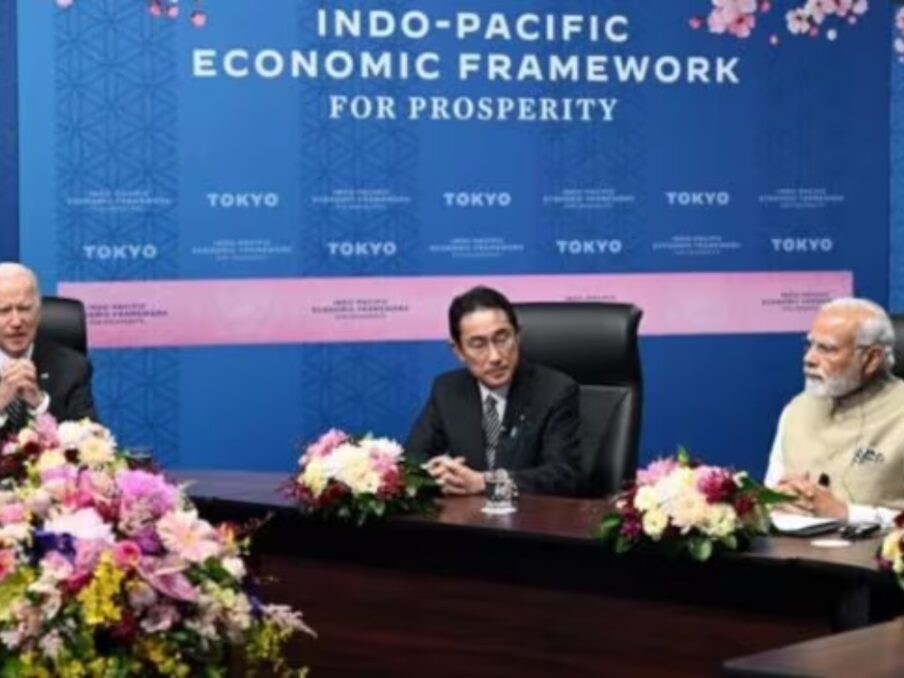
Image source: Hindustan Times
Connecting markets through policies and standards focuses on sustainable, resilient, reliable, and affordable energy while promoting low- and zero-emission goods and services. Concrete initiatives are being developed to advance cooperation in areas critical to achieving net-zero emission economies, including a regional hydrogen initiative for widespread low-carbon and renewable hydrogen deployment.
Commitment to Fair Trade
While India is an observer in the trade pillar, the other IPEF members remain committed to crafting high-standard, inclusive, free, fair, and open trade commitments.
The agreement encourages collaboration in improving logistics and connectivity, promoting investments in critical sectors, and mitigating disruptions to ensure business continuity.
The IPEF’s comprehensive approach encompasses anti-corruption measures, tax initiatives, and enhanced cooperation on capacity building and technical assistance.
The Indo-Pacific Economic Framework’s supply chain resilience and diversification deal signifies a decisive step toward reducing reliance on China and addressing future supply chain challenges.
With the establishment of institutions to enhance coordination, crisis response, and labour rights, the IPEF aims to fortify supply chains while striving for a clean and fair economy.
This agreement demonstrates the commitment of 14 participating nations, representing a substantial share of global GDP and trade, to collaboratively shape the future of the Indo-Pacific region.
#IndoPacificEconomicFramework #SupplyChainResilience #SupplyChainDiversification #InternationalTrade #EconomicCooperation #CrisisResponse #LaborRights #CleanEconomy #HydrogenInitiative #FairEconomy







